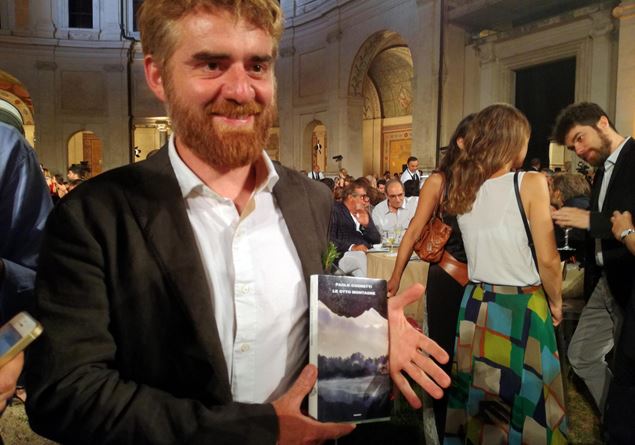
The narrative of himself that the writer provided Paolo Cognetti it’s one of those you don’t expect. A very successful man talks about his psychiatric illness, how he was overwhelmed by it and how he still feels fragile and vulnerable: it is not every day that mental health problems are embodied in the complete story of a person who reports the symptoms, the effort in facing them, the falls and the uphill journey that must be done to learn to return to life, capable of not being at the mercy of the roller coaster that the mind can turn on when it is out of balance.
Cognetti didn’t hide anything: he revealed his downfalls, describing the roller coaster of his bipolar depression, an illness where when you’re down you feel like you’re in hell and when you’re up you’re so accelerated that you do things you would never have imagined doing in a normal condition. His story aroused attention and touched readers because at a certain point of his “feeling ill”, the writer was forced to seek treatment, as a TSO, i.e. compulsory health treatment, was ordered for him. It sometimes happens that you are in such danger or that the evil that pervades you endangers the lives of those around you that you have to arrange for treatment. That care that you are unable to choose and want for yourself. But which you cannot do without, even if you don’t understand why it is so necessary to you. You become in some way “prisoners” of those who want your good. You are locked in a place where those who plan your ascent do not give you the freedom to be who you want to be and do what you want to do. Containment is environmental (you find yourself forced to remain in a psychiatry ward), pharmacological (everything that triggers the imbalance in your mental functioning is chemically extinguished), social (the access that others can have to you is limited and vice versa ).
Mental illness is still subjected to a great stigma. On a cultural and social level. This is why the testimony that Cognetti wanted Sharing about your illness and your life is really important. It helps to understand that there are health problems that are difficult to recognize first of all with oneself. It helps to understand that in a world that forces you to be happy, pain and discomfort struggle to find their place. A necessary place, of which we must be aware. “Depression and mental distress are a karst river in flood, denied and ignored to accredit the idyll of a happy society. We are obliged to appear healthy, strong and full of joy. But I am a writer: for me it is time to lift the veil of guilt that hides the pain. I simply want to tell the truth, at the risk of being brazen.” These are the words with which Cognetti provided the definition of what is in this moment and the need to let us know. And these words are a true gift, an opportunity for awareness.
More and more often we read in the media how much psychic suffering goes through the lives of us human beings of the third millennium. We find articles with research data, interviews with specialists. But we almost never find the stories behind those numbers. The interview in which Paolo Cognetti spoke about himself allows us to put a face to those numbers. It embodies in the events of a human being a pain that society struggles to understand. Something that is talked about in the abstract and little in concrete terms. For this we must be grateful. And we wish him that the courage with which he spoke about his illness is also the courage with which he will be able to go through the time and effort necessary to cure it.






